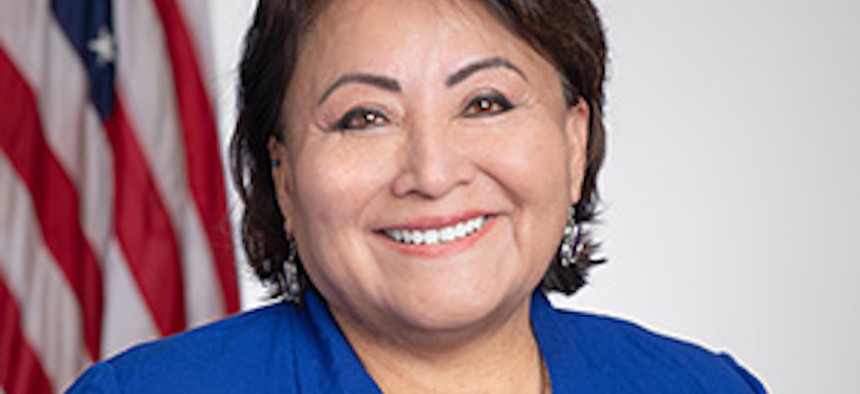
Roselyn Tso is the current director of the Indian Health Service. Courtesy of Indian Health Service
The Director of the Indian Health Service Would Get More Power Under A Bipartisan Proposal
Lawmakers say the proposed change “will bring greater attention within the administration to addressing the health care status and needs of American Indians and Alaska Natives.”
A bipartisan pair of lawmakers want to elevate the role of the federal official in charge of healthcare for American Indians and Alaskan Natives to better serve those communities.
Reps. Greg Stanton, D-Ariz., and David Joyce, R-Ohio, recently introduced legislation that would raise the job of the Indian Health Service director to that of an assistant secretary for Indian Health within the Health and Human Services Department.
“The Senate-confirmed position will bring greater attention within the administration to addressing the health care status and needs of American Indians and Alaska Natives, said a press release from the lawmakers. “The assistant secretary would work to enhance the government-to-government relationship between Indian tribes and the United States, increase access and collaboration among agencies within HHS as Indian health policy and budgets are developed, bring much needed parity to Indian health care needs, and ensure these issues are a priority in current and future administrations.”
IHS serves about 2.6 million individuals who are part of 574 federally recognized tribes in 37 states, according to the agency’s website. The National Congress of American Indians, National Indian Health Board, and National Council of Urban Indian Health support this effort for the IHS director, which was first proposed in the mid-1990s.
“Representation at the highest levels of government is not only a reaffirmation of the federal trust responsibility with respect to Indian health care,” said Fawn Sharp, president of the National Congress of American Indians, “but as we have seen time and again, it is also critical to the federal government serving the broad needs of Indian Country in a meaningful and beneficial manner.”
IHS said it does not comment on pending legislation.
Since 2017, the Government Accountability Office has had “improving federal management of programs that serve tribes and their members” on its high-risk list. President Biden reiterated his commitment to Tribal Nations and Native communities in his budget request for fiscal 2024, sent to Congress last month. IHS Director Roselyn Tso wrote that this proposal builds on the historic funding the agency received for fiscal 2023 and it aims to address the “access, quality, management and operations” challenges it continues to face.







